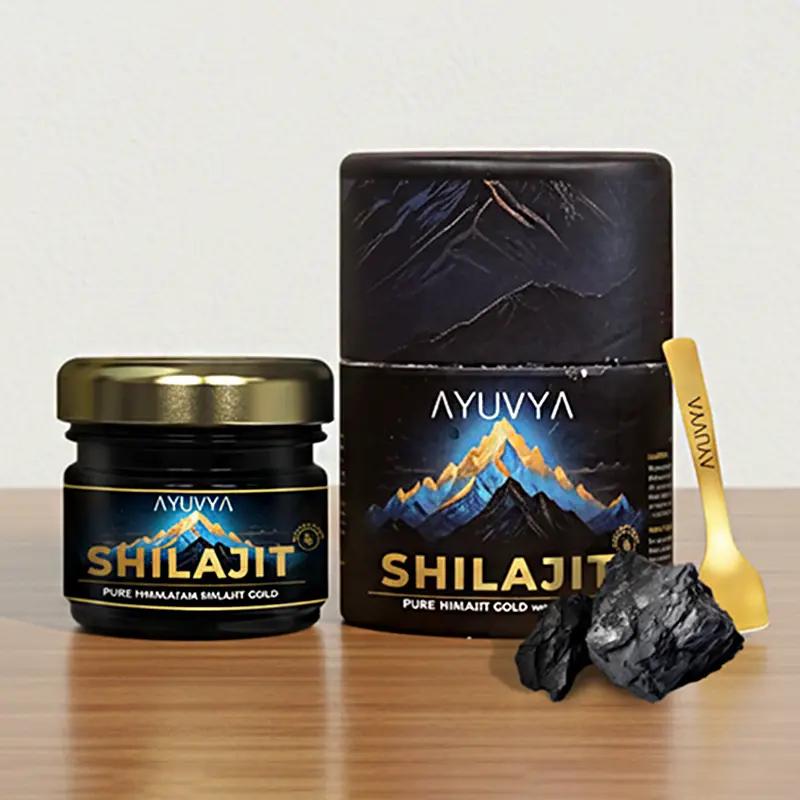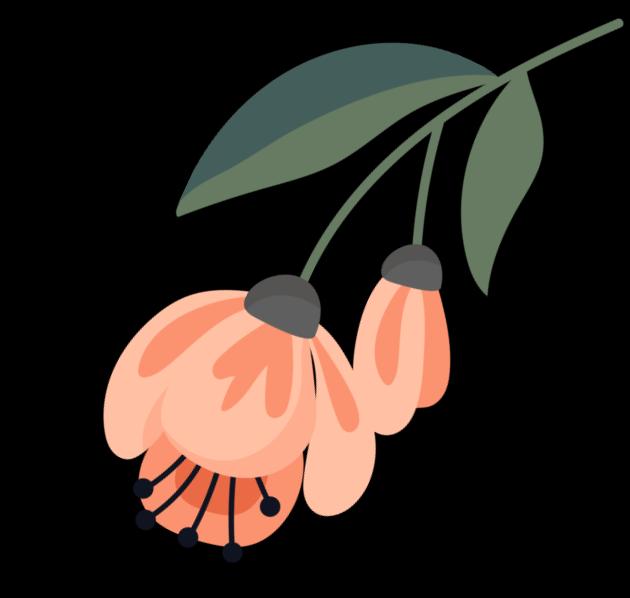Ayurvedic Remedies that May help with Prostate Enlargement: Symptoms, Causes, and Herbal Care
Jun 15, 2024

Prostate enlargement also known as benign prostatic hyperplasia is a common condition affecting many men as they age. It involves the prostate gland growing larger, which can lead to uncomfortable urinary symptoms, such as blocking the flow of urine out of the bladder.
Table of Contents:
- What is Prostate Enlargement?
- Prostate Enlargement According to Ayurveda
- Signs and Symptoms of Prostate Enlargement
- Causes of Prostate Enlargement
- How Ayurveda Can Help in Treating Prostate Enlargement?
- Conclusion
- FAQs
Ayurveda is the traditional Indian system of medicine, offering natural solutions for managing this condition. Focusing on the ayurvedic cure for prostate enlargement, various herbs and dietary adjustments are recommended to help reduce symptoms. These remedies work to balance doshaa of the body and improve urinary function. Additionally, ayurvedic medicine for prostate enlargement includes lifestyle changes that support overall prostate health.
What is Prostate Enlargement?
Prostate enlargement, medically known as benign prostatic hyperplasia is a common condition where the size of the prostate gland grows larger in men as they age. This gland surrounds the urethra, the tube through which urine flows out of the body. When the prostate enlarges, it can press against the urethra, causing urinary problems such as difficulty in starting to urinate, frequent urination, and a feeling of not fully emptying the bladder.
Prostate Enlargement According to Ayurveda
According to Ayurveda, the body is governed by three doshas: Vata, Pitta, and Kapha. Each dosha influences various physical, emotional, and mental characteristics. Prostate enlargement is associated with an imbalance in the Vata dosha, which is responsible for movement and regulation in the body. When Vata is unbalanced, it can lead to issues like an enlarged prostate. Ayurveda aims to correct this imbalance through specific herbs, dietary adjustments, and lifestyle practices, helping to manage the symptoms and maintain overall urinary health.
Signs and Symptoms of Prostate Enlargement
Increased need to urinate frequently throughout the day.
Sudden, strong urges to urinate immediately.
Involuntary leakage of urine.
Frequent waking at night to urinate.
Difficulty in starting urination and a sensation of not fully emptying the bladder.
Discomfort or burning sensation during urination.
Pain during ejaculation.
Changes in the colour or smell of urine.
Causes of Prostate Enlargement
1. Ageing
The risk of prostate enlargement increases significantly as men age. It is rare in men under 40, but the prevalence rises dramatically in men over 50, and most men experience some level of prostate growth by the time they reach their 60s and 70s.
2. Hormonal Changes
As men age, the balance of hormones in their bodies changes. An increase in estrogen (relative to testosterone) that occurs as men grow older may contribute to prostate growth. Additionally, the hormone dihydrotestosterone (DHT), a more potent form of testosterone,is linked to the enlargement of the prostate. The prostate converts testosterone to DHT, and high levels of DHT are associated with increased prostate growth and the risk of developing BPH.
3. Genetic Factors
There is a genetic component to BPH. Men who have a family history of prostate enlargement, particularly if their father or brother has had BPH, are more likely to develop the condition themselves.
4. Ethnic Background
Ethnicity also plays a role in the risk of developing BPH. For example, BPH is more common in white and black men than in Asian men. Differences in diet, lifestyle, or genetic predispositions might contribute to these disparities.
5. Lifestyle and Diet
Certain lifestyle factors such as obesity and a diet high in red meat and fats can increase the risk of developing prostate enlargement. Conversely, a diet rich in fruits, vegetables, and healthy fats can potentially lower the risk.
6. Cellular Changes
As men age, the cells in the prostate gland may begin to multiply, which leads to an increase in prostate size. This can happen due to changes at the cellular level influenced by various factors including hormonal imbalances and chronic inflammation.
How Ayurveda Can Help in Treating Prostate Enlargement?
Prostate enlargement ayurvedic treatment in India is a holistic approach that includes herbs, lifestyle changes, and a specific diet. Here is how these elements work together:
Herbal Treatment
1. Shilajit
Rich in minerals, Shilajit is valued for its role in rejuvenating the body and enhancing the overall functioning of the urinary tract. It supports the health of the urinary tract by providing essential nutrients and improving the rejuvenation processes of the body, helping to maintain effective urinary function.
2. Gokshura
Gokshura is a herb in Ayurvedic for its ability to promote urinary and reproductive health. It is often used to treat issues like urinary tract infections and kidney stones, as well as to ayurvedic medicine for prostate gland enlargement.
3. Guggul
Guggul is a resin extracted from the bark of the guggul tree and is famous for its powerful purifying properties. It is primarily used in Ayurveda to manage cholesterol levels and support weight management. Guggul is also known for its anti-inflammatory effects, making it effective in the treatment of arthritis and other inflammatory conditions.
4. Punarnava
Punarnava is celebrated for its diuretic properties, making it effective in reducing the swelling associated with an enlarged prostate. It aids in managing symptoms by facilitating the removal of excess fluids and reducing tissue swelling, which helps ease pressure on the urinary tract and improve urine flow.
5. Lavang
Lavang is renowned for its antiseptic properties and is often used in Ayurvedic medicine to treat various ailments, including dental issues like toothaches and gum diseases due to its strong germicidal properties. Additionally, clove is used to improve digestion and to counteract stomach pains, nausea, and vomiting.
6. Varuna
This herb is renowned for its effectiveness in reducing prostate swelling and enhancing urinary flow. It helps alleviate urinary symptoms like difficulty in initiating urination and a weak urine stream by strengthening the bladder muscles and enhancing bladder control.
Lifestyle Changes
Regular Exercise: Light exercises like walking and yoga can improve blood circulation and help reduce the symptoms of an enlarged prostate.
Stress Management: Practices like yoga, meditation, and deep breathing exercises can help manage stress, which might exacerbate BPH symptoms.
Adequate Sleep: Ensuring a proper sleep schedule helps in the overall balancing of body energies.
Dietary Improvement
Increase Vegetable Intake: Foods like pumpkin seeds, cucumbers, celery, and asparagus are beneficial.
Whole Grains: Include ample amounts of whole grains like quinoa, barley, and oats in your diet.
Fruits: Consuming fruits such as watermelon and mangoes can help.
Reduce Spicy and Salty Foods: These can irritate the bladder and worsen symptoms.
Stay Hydrated: Drinking sufficient water throughout the day helps in flushing out toxins and supports overall urinary health.
Conclusion
Prostate enlargement is a common issue for many men as they age. While natural medicine for enlarged prostate can offer significant relief, using a combination of effective herbs helps improve urinary function and reduce symptoms. Lifestyle changes and a healthy diet also play a crucial role in managing this condition.
Using ayurvedic medicine for prostate enlargement can significantly improve symptoms. These natural remedies help not only the prostate gland but also boost overall health and well-being. It offers effective options for managing an enlarged prostate with a focus on overall health.
Frequently Asked Questions
Yes, staying hydrated is crucial as it helps flush the urinary tract and reduce bladder irritation, which is important for managing prostate enlargement symptoms.
The most effective treatment varies, but combining lifestyle changes, proper diet, and herbal remedies typically provides substantial relief from symptoms.
Regular exercise, a healthy diet, and the use of specific herbs like gokshura can help manage prostate size effectively.
Pelvic floor exercises, also known as Kegel exercises, may help strengthen the muscles around the prostate and improve symptoms.
Tomatoes are excellent for prostate health because they are high in lycopene, an antioxidant that supports prostate wellness.
Drinking green tea is beneficial for those with an enlarged prostate due to its antioxidant properties, which help reduce inflammation.
A long-term solution for prostate enlargement involves maintaining a balanced diet, regular physical activity, and consistent use of herbal remedies known to support prostate health.
The fastest natural way to address an enlarged prostate is through a healthy diet rich in vegetables and low in processed foods, coupled with regular exercise and herbal supplements like saw palmetto.
Ayurveda can help manage the symptoms of an enlarged prostate through natural remedies and lifestyle changes. It focuses on balancing the body's energies and improving urinary function.














